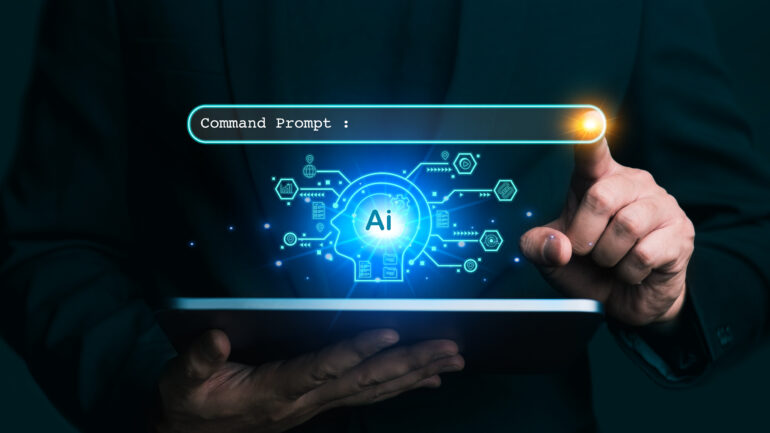Merging Mission with Money: OpenAI to become For-Profit Company

OpenAI’s transition from a nonprofit to a for-profit entity reflects broader trends in the tech industry, where the quest for capital and profitability increasingly intersects with ethical considerations and social responsibilities. As OpenAI navigates the complexities of this transition, it must find a delicate balance between innovation and responsibility.
OpenAI, an organisation once celebrated for its altruistic mission of developing artificial intelligence for the public good, now finds itself at a significant crossroads. The firm, which began as a nonprofit in 2015 with a vision of advancing AI technology that would benefit humanity, is in the process of transitioning to a for-profit company. This shift, while seemingly a natural evolution in the face of the rapid growth of generative AI technologies like ChatGPT, prompts us to examine the deeper implications of such a transformation.
OpenAI’s For-Profit Shift
The decision to convert to a for-profit model reflects not only the changing landscape of technology and finance but also the profound pressures faced by OpenAI in its quest for sustainable growth. Founded during a time when the ethical implications of AI were still emerging, OpenAI was initially governed by a commitment to operate without the burden of financial returns. This approach was admirable, but it began to show strains as the organisation achieved monumental success, most notably with the launch of ChatGPT in late 2022.
The popularity of ChatGPT and its applications in various sectors stirred a global interest in AI capabilities, transforming OpenAI into a focal point of innovation. Yet, as demand surged, so too did the necessity for substantial funding. To accommodate this growth, OpenAI had created a for-profit subsidiary in 2019, designed to attract investment while retaining a commitment to its foundational mission. However, this hybrid structure introduced complexities that eventually prompted a re-evaluation of its operational model.
The pressures on OpenAI escalated following a tumultuous period in leadership. The brief ousting of CEO Sam Altman highlighted governance challenges within the organisation, leading investors to question whether the nonprofit-for-profit hybrid model was the best approach to sustain OpenAI’s success. Investors began advocating for a more straightforward corporate structure – one that would allow for greater clarity in governance and a direct path to profitability.
The Nature of the Transition
The shift to a for-profit model is not simply a financial manoeuvre; it embodies a philosophical evolution regarding the role of AI in society. As OpenAI contemplates becoming a public-benefit corporation (PBC), it must grapple with the dual responsibilities of generating profit while still adhering to a commitment to social good. This is no small task. A PBC, by definition, must balance its profit motives with an obligation to produce a positive impact on society, thus creating tension that OpenAI must traverse carefully.
OpenAI’s restructuring comes at a time when the demand for capital is paramount. The organisation is currently in the midst of raising up to $6.5 billion from various backers, including technology giants like Microsoft and Nvidia. Investors in this new round are eager for a clearer stake in the company’s future profitability – essentially, they are looking for traditional equity rather than the profit-sharing agreements that were previously in place. This move signals a desire for a more predictable return on investment, which could simplify financial arrangements and potentially open up new avenues for growth.
However, the transition to for-profit status raises questions about the ethical and operational implications of such a move. OpenAI must ensure that it does not compromise its original mission of safe and responsible AI development in pursuit of profit. The challenge lies in redefining the organisation’s priorities while maintaining its commitment to ethical AI practices.
Legal and Regulatory Challenges
A labyrinth of legal and regulatory hurdles faces those converting their status as OpenAI is, particularly in ensuring the transition complies with the laws governing nonprofits and for-profits alike. A significant component of this transition is the necessity for the company to retain a nonprofit arm that will continue to pursue charitable objectives while also holding a stake in the newly established for-profit entity.
Legally, the nonprofit must retain assets of equal value to those transferred to the for-profit structure, which presents a challenging valuation scenario. Given OpenAI’s extensive portfolio of intellectual property and technological innovations, determining the value of these assets is no trivial matter. As legal experts point out, any assets previously designated for public benefit cannot be repurposed for private gain without compensating the public for the loss. This requirement could significantly complicate the transition, as OpenAI will need to ensure that its nonprofit arm retains a meaningful stake in its future success.
Moreover, regulatory scrutiny is likely to increase as OpenAI moves forward with its transition. Investors, particularly those like Microsoft that have made substantial financial commitments, will be closely monitored to ensure that they do not exert undue influence over the newly structured company. This concern underscores the importance of transparency and accountability in the governance of OpenAI, especially as it prepares to attract further investment.
For investors, the transition to a for-profit model represents a welcomed opportunity. The potential for uncapped profits – something that was previously limited by the nonprofit structure – could attract a wider array of capital, bolstering OpenAI’s capacity to innovate and expand. This shift might also enhance the company’s competitive position in the rapidly evolving AI landscape, where securing funding is critical for maintaining a technological edge.
Nevertheless, with greater investment comes greater responsibility. OpenAI must carefully balance the demands of its investors with its ethical obligations to develop AI technologies that are safe and equitable. Investors who are drawn to the prospect of financial returns must also recognise the potential societal implications of their investments in AI, and OpenAI will need to cultivate a culture of accountability that aligns profit motives with public good.





